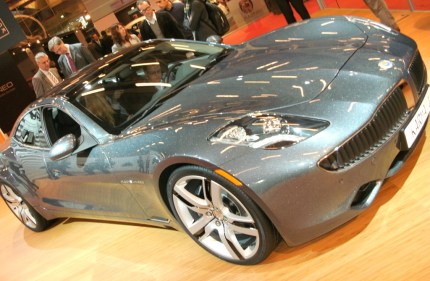
The new poll indicated that American respondents said they would not want to own “an electric car that you could only drive for a limited number of miles at one time.” The poll backs up several reports that indicate a growing concern about whether electric cars can attract mainstream buyers when they are not able to travel as far as a typical electric car.
[aditude-amp id="flyingcarpet" targeting='{"env":"staging","page_type":"article","post_id":261384,"post_type":"story","post_chan":"none","tags":null,"ai":false,"category":"none","all_categories":"business,enterprise,","session":"A"}']Most electric cars have limited range when compared to hybrid-electric cars — which use both an internal combustion engine and battery technology to improve mileage — and cars powered by internal combustion engines. Nissan’s Leaf, for example, can only travel around 100 miles before it has to recharge. The supercharged Tesla Roadster can travel more than 200 miles, but it has a mammoth price tag that most consumers wouldn’t be able to afford — around $109,000 before environmentally-friendly credits.
Battery-powered and hybrid-electric cars will only capture around 7.3 percent of all car sales by 2020 because the vehicles are mostly over-hyped and face those same problems, according to a report by global marketing firm J.D. Power & Associates. Concerns about electric car looks, design, power and range were the largest holdout points for customers considering electric cars over internal-combustion vehicles, according to the report. That means electric car sales will only account for 5.2 million sales out of 70.9 million cars sold that year.
AI Weekly
The must-read newsletter for AI and Big Data industry written by Khari Johnson, Kyle Wiggers, and Seth Colaner.
Included with VentureBeat Insider and VentureBeat VIP memberships.
Most of the concerns for electric car buyers center around how long it takes to charge the car and how far it is able to drive, according to a report by consulting firm Accenture. Only 15 percent of electric car buyers said they were concerned about the cost of an electric car, which can range from $32,780 for the Nissan Leaf to $109,000 for the supercharged Tesla Roadster, according to the report. Tesla Motors’ Model S electric car, which is designed to attract more mainstream buyers, for example, will come in three different models that can travel between 160 miles and 300 miles before needing a recharge and will cost anywhere from $57,400 for the cheapest model to $77,400 for the model that can travel farthest.
Most of the 1,000-some odd Leaf owners drive an average of 7 miles per trip and spend about 2 hours charging the car with a 220-volt charger, according to information released by Nissan. Leaf owners are also in the top 15 percent of households with regards to income, according to the report. That means they are much more likely to be able to afford some of the higher priced electric cars than typical car buyers who simply need something that will take them from point A to point B as cheaply as possible.
Which of these factors concerns you most if you were planning on buying an electric car? Let us know in the poll below.
Will you buy an electric car?Market Research
VentureBeat's mission is to be a digital town square for technical decision-makers to gain knowledge about transformative enterprise technology and transact. Learn More
